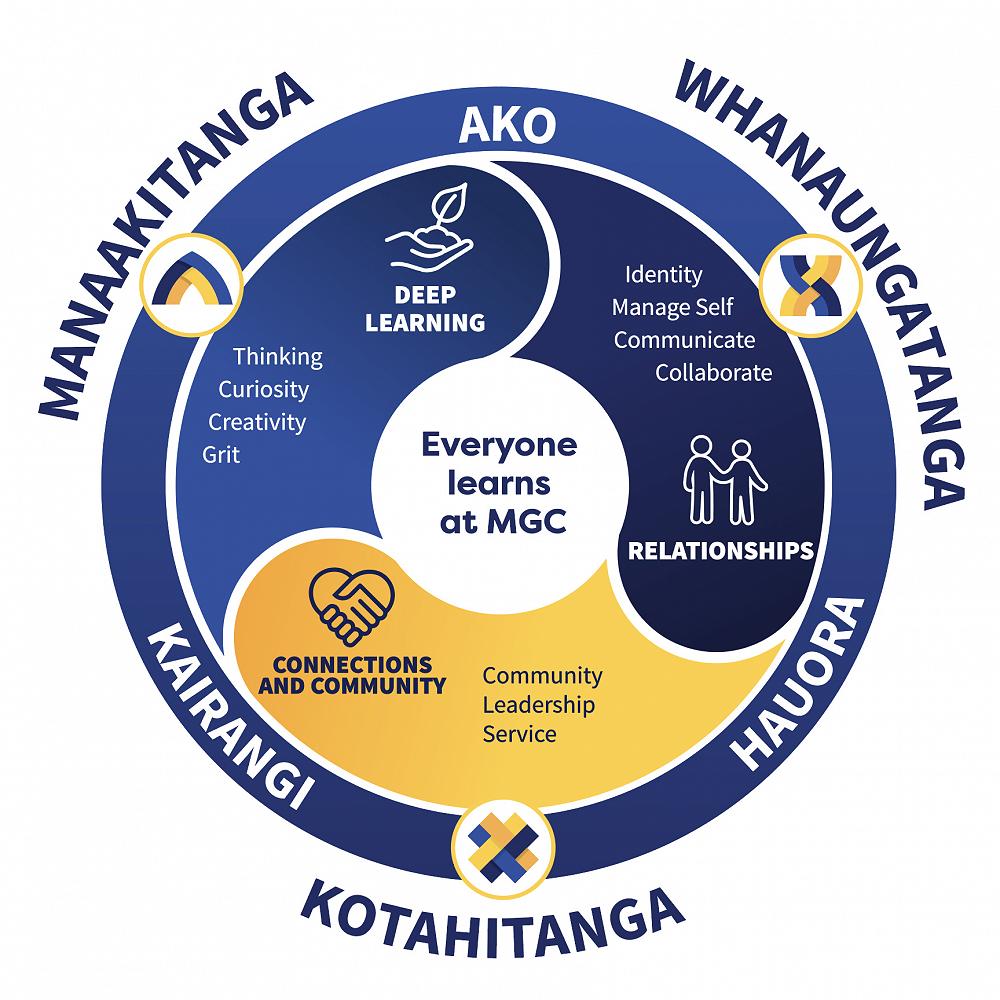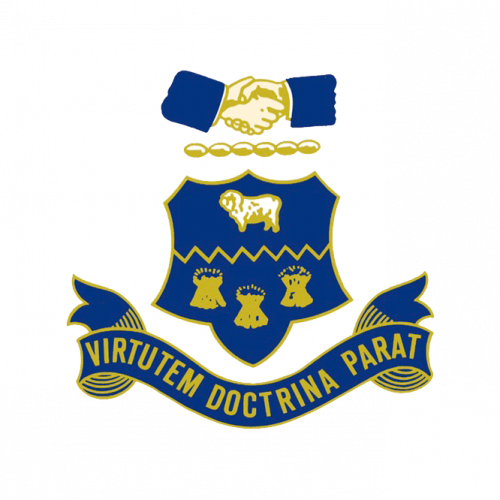
Year 11 Learning Programme 2024 and beyond
Mate atu he tētēkura, ka whakaeke mai he tētēkura - As one frond perishes, another grows in it's place.
In early April we shared with you the changes and review happening in teaching and learning across the country and at Marlborough Girls’ College. The new draft NZ Curriculum, Te Mātaiaho can be accessed here.
We are really delighted that the new learning framework of Understand, Know and Do aligns with our current Year 9 and 10 course design, and will provide the framework of our new Year 11 learning programme. At the Board meeting last week we shared our proposal for our Learning Pathways and Year 11 Learning Programme for 2024 and beyond. The proposals were endorsed by the Board and I am very pleased to share them with you today.
From 2024 our Learning Pathways at MGC will be:
Years 9-11 Connected Learning
Engage & Explore – Learning is designed to develop MGC’s foundational Ākonga Capabilities for future success. Ākonga connect with self, with others and the community to learn in a range of relevant and challenging contexts.
Year 12-13 Pathways Learning
Personalised - Learning is designed to strengthen MGC’s Ākonga Capabilities and prepare for life beyond school. Learning experiences/opportunities allow ākonga to pursue excellence, interests and strengths through flexible learning pathways.
Over the last year, a small team of leaders conducted a review of Year 11 both here at MGC and in other schools across the country. Their report to the Board can be read here. It identified the drivers of change for Year 11 learning, which are summarised below.
From - our current Year 11 learning programme
Assessment driven planning and practices
‘Bricks and no mortar’ learning
- Narrowed curriculum
- Rehearsal strategies and superficial learning
- Lack of coherence
- Overassessment - with negative impacts on student wellbeing
- Time for teaching and learning (too much time spent on assessment)
- Teacher workload
- Emphasis on covering content, not capabilities
- Grade / credit focused learning behaviours
- Disparity of outcomes
- Streaming is prevalent
To - our new Year 11 learning programme
-
Planning and practice is learning-led (not assessment driven)
- Learning is engaging, challenging and contextual
- Learning is coherent
- Mana ōrite mo te mātauranga Māori embedded
- The aspirations and expectations of iwi from Te Tauihu are met
- Teaching & Learning is collaborative
- MGC Ākonga Learner Capabilities are embedded
- UDL pedagogies used so that ‘everyone learns at MGC’
- Student progress is determined from a range of performances
- More time for rich, deep learning and realising the MGC V4L
- Equity in opportunities and outcomes - remove streaming
What this means is that teachers are currently developing course proposals for our 2024 Year 11 learning programme and are excited about the opportunities ahead. Students will choose six courses in Year 11, some of which may be for a semester, others for the whole year.
We are particularly concerned about the significant impact on students of high stakes assessment which currently happen in Years 11, 12 and 13. The level of anxiety and stress amongst students, together with a focus on credit gathering and perfectionism are counter to what we believe great learning should look like. We have decided that we will not continue to offer NCEA Level 1 assessment as part of our Year 11 learning programme next year. Our courses will build the skills and knowledge students need to succeed in Year 12 and 13, and gain their Level 2 and 3 NCEA to progress on to future learning or the workplace.
The Ministry of Education has always said that Level 1 NCEA is optional, and we know that the vast majority of our students gain Level 2 or 3 by the time they leave school, which means they get Level 1 anyway.
There are a number of other schools who are no longer offering NCEA Level 1, and our research team talked with them all to understand their experiences. We were pleased to hear that all schools shared positive stories, particularly for students.
Many of our students have told us about how over-assessment has impacted on their wellbeing and their enjoyment of school and learning. We are working to develop and retain a passion for learning amongst all our students, through an engaging, challenging and relevant learning programme.
Removing NCEA Level 1 assessment will add at least 6 weeks of teaching and learning time for Year 11 students, and allow for much more flexibility in the range of courses and opportunities available.
This is a significant decision for us, one which we all take very seriously. We know there is much to work through before the start of next year and look forward to sharing more information with you in future Bulletins.
Thank you for your ongoing support.
Ngā mihi nui
Mary-Jeanne Lynch, Principal | Tumuaki
